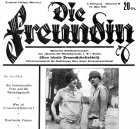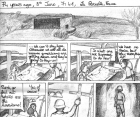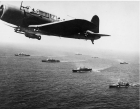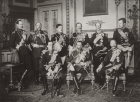Europe 1901-present
While war seems to be a backdrop to events in Europe in this time period the articles collected here explore many of the wider impacts and elements to the war. Medicine and technology are explored alongside dramatic changes in social attitudes. The political events that disrupt and shape Europe of the 20th century are explored though a range of engaging articles that include Russia and the USSR, Fascism and European co-operation.
Sort by:
Date (Newest first) | Title A-Z
Show:
All |
Articles |
Podcasts |
Multipage Articles
-

The knowledge illusion
ArticleClick to view -

Thinking about the ethical dimension
ArticleClick to view -

Three lessons about a funeral: Second World War cemeteries and twenty years of curriculum change
ArticleClick to view -

Triumphs Show 141: using family photos to bring the diversity of Jewish lives to life
ArticleClick to view -

Triumphs Show 144: Active learning to engage ‘challenging students'
ArticleClick to view -

Triumphs Show 160: Prezi and propaganda
ArticleClick to view -

Triumphs Show 192: Balancing micro- and macronarratives of the Holocaust
ArticleClick to view -

Triumphs Show 193: Year 8 imagine the First World War trenches
ArticleClick to view -

Triumphs Show: Diversifying the curriculum at A-level
ArticleClick to view -

Triumphs Show: Recovering the queer history of Weimar Germany in GCSE history
ArticleClick to view -

Triumphs Show: ‘The Strands of Memory’
ArticleClick to view -

Unsung Heroes: The British Merchant Navy WW2
Multipage ArticleClick to view -

Using nominalisation to develop written causal arguments
ArticleClick to view -

Using the concept of place to help Year 9 students to visualise the complexities of the Holocaust
ArticleClick to view -

Using visual sources to understand the arguments for women's suffrage
ArticleClick to view -

Using ‘Assessment for Learning' to help students assume responsibility
ArticleClick to view -

VE Day: free home learning resource
5th May 2020Click to view -

Virtual Branch recording: Why has Monarchy survived in Europe?
ArticleClick to view -

WWI and the flu pandemic
ArticleClick to view -

Waking up to complexity
ArticleClick to view

